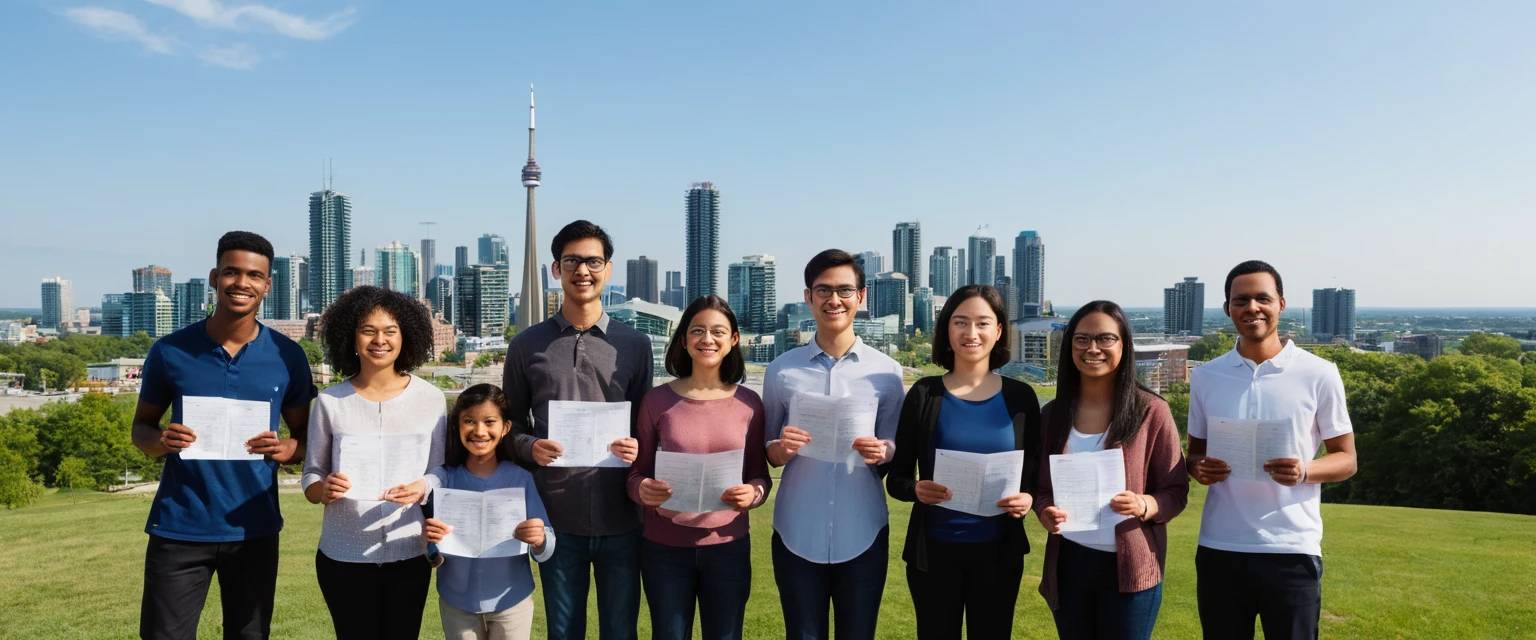Graduate Study Permits in Canada: Cap Exemption and 2‑Week PhD Processing
Canada has become an even more attractive destination for international graduate students, thanks to landmark study permit updates. Starting January 1, 2026, master’s and doctoral students at public Canadian institutions will be exempt from the federal study permit cap, while PhD students will benefit from ultra-fast two-week application processing. At Sayal Immigration, our team guides students and families in Toronto, Mississauga, Brampton, Kitchener, Scarborough, and London Ontario through every step of this new process.
What Changed for Master’s and PhD Students
Cap Exemption from January 1, 2026
Graduate students pursuing a master’s or PhD at a Canadian public institution can now apply for study permits without worrying about the country’s cap on permits or the need for a Provincial or Territorial Attestation Letter (PAL/TAL). This policy change means you won’t risk missing out due to quota limits and don’t need to pay a hefty upfront deposit just to secure your spot before applying for your permit. Learn more about IRCC’s study permit requirements.
Two‑Week Processing for PhD Applicants
Doctoral applicants applying from outside Canada now qualify for expedited two-week study permit processing. Your spouse or partner and dependent children can benefit from fast-tracked work or study visas if their applications are submitted together, making it much easier for families to begin life in Canada as a unit. Official IRCC page for PhD processing
Who Qualifies (and Who Still Needs a PAL/TAL)
You’re Exempt If:
-
You’re admitted to a master’s or PhD program at a public Canadian institution starting January 1, 2026 or later.
-
You apply with all required documents, including Letter of Acceptance, proof of funds, and passport.
Check if your school is a Designated Learning Institution (DLI).
You Likely Still Need a PAL/TAL If:
-
You’re studying at the undergraduate level, doing a postgraduate certificate/diploma, or attending a private institution.
-
You are switching programs or reapplying after a refusal (always confirm with your institution).
Full IRCC PAL/TAL guidance here.
Required Documents for Graduate Study Permit Applications
Always Needed
-
Letter of Acceptance (LOA) from a DLI
-
Valid passport and identity documents
-
Proof of funds to cover tuition and living expenses
-
Recent photos meeting IRCC specifications
See IRCC’s up-to-date application checklist.
Sometimes Needed
-
Upfront medical exam (if required for your program length or previous country of residence)
-
Police certificates
-
Country/visa office-specific documents
-
Proof of custody for accompanying minors
Panel physicians list for medicals (IRCC)
Applying with Sayal Immigration: Ontario’s Graduate Student Specialists
Whether you’re applying for a study permit in Toronto, Brampton, Mississauga, Kitchener, or Scarborough, Sayal Immigration makes your journey smooth and compliant.
Our Local RCIC Services Include:
-
Reviewing school choices and confirming your cap exemption
-
Document prep for Toronto (U of T, York), Mississauga (UTM/Sheridan), Brampton, Kitchener, and Scarborough universities/colleges
-
Helping families of PhD students file together for two-week processing
-
Coaching for personal statements and SOPs
-
Guidance on PGWP planning and PR eligibility for graduate students
Explore all our immigration consultant services in Canada.
Step-by-Step: Filing a Graduate Study Permit
-
Confirm your exemption: Review your program and institution status—public master’s/PhD from January 2026 onwards is key.
-
Gather core documents: LOA, proof of funds, passport/ID, compliant photos.
-
Prepare supporting evidence: Letter of explanation, medical exam, police certificate if required.
-
Apply for all family members together if pursuing a PhD: This enables expedited processing.
-
Apply online via the IRCC portal and double-check your files for completeness.
-
Track your application: Respond quickly to any additional document requests or biometrics instructions.
Create your IRCC account to apply
Looking Ahead: Graduate Studies, PGWP and PR
A key benefit for master’s and PhD students at public institutions is their continued eligibility for the Post-Graduation Work Permit (PGWP). Completing PGWP-eligible programs in cities like Toronto or Kitchener sets you up for Express Entry or Provincial Nominee Program (PNP) options—major pathways to Canadian permanent residence.
Express Entry overview (IRCC) PNP info (IRCC)
Frequently Asked Questions
Q1: Do all master’s/PhD students avoid the cap and PAL/TAL?
All master’s and doctoral students at public institutions (starting with cohorts entering Jan 2026+) are exempt. Always confirm your program type and institution’s public status before applying.
Q2: How do PhD applicants get two-week processing?
You must apply online from outside Canada and submit all documents (plus those of any eligible family) with your principal application.
Q3: Can private-college grad students skip the cap?
No—most private institution programs are still subject to the cap and PAL/TAL requirements unless IRCC specifies an exemption.
Q4: How does this affect PGWP eligibility?
Public-university master’s and doctorates remain strong PGWP choices. Private programs require careful review for compliance.
Q5: Can Sayal Immigration help families bundle applications?
Absolutely; our consultants ensure your spouse/partner and dependents are included if you qualify, maximizing approval speed and success.



